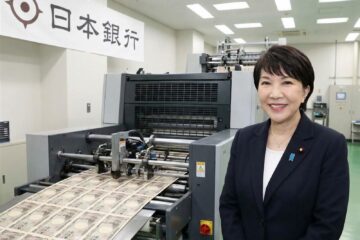Download PDF
United States
This week the S&P 500 index experienced its biggest weekly gain in three months, going up by 3.84% and closing at 3,477.13, slightly more than the +3.27% characterizing the Dow Jones that finished its rally at 28,586.90. Generally speaking, volatility appears to have decreased across the market with the VIX going down by roughly 10%, reflecting a positive sentiment of investors who looked rather optimistically at new potential treatments for the Coronavirus and welcomed favourably the $1.8T Virus-Relief Proposal made by the Trump administration to the democrats. Utilities and energy stocks outperformed the others also thanks to the positive note made by the OPEC Secretary-General Mohammed Barkindo who claimed that the “worst is over for producers”, thus spurring a rise in oil prices. The Nasdaq Composite Index posted its best week since July going up by a considerable 4.56% and closing in the territory of 11,579.94.
Markets welcomed the positive news regarding the quick recovery of Donald Trump from the COVID-19 infection, especially in the light of the use of the Regeneron’s REGN-COV2 monoclonal antibody coronavirus therapy. Moreover, as the White House doctor, Dr. Sean Conley, asserted publicly the president of the U.S. will be able to hold public events for its election campaign already this Saturday. But it’s not all fun and games, U.S. unemployment claims remained elevated above 800,000 as layoffs persist and the labour-market recovery flashes signs of a slowdown. Major corporations announced job cuts last week, including American Airlines Group Inc. and Walt Disney Co. Furthermore, WarnerMedia announced major reductions in the costs associated with its workforce implementing a major corporate restructuring to alleviate the debt’s burden that is particularly heavier in these days of drastically lower streams of income from movie tickets, cable subscriptions, and TV ads.
The Euro/USD closed at 1.183 with a weekly gain of 0.95%, surpassing the psychological barrier of 1.18 Eur/USD, prompting concerns for European policymakers regarding a strong currency that together with weak demand and lower-wage pressure entail that the inflation rate will remain negative at least for the whole remaining part of 2020 in the Eurozone.
Europe
The European main reference index for equities, the Eurostoxx 50, posted the second consecutive week of gains with a weekly increase of 2.58%, rising from 3,190.93 to 3,273.12 at the closing bell on Friday. All of this happens amid rising hopes for the next earning season caused by positive corporate guidance updates (see GN Store Nord, Pandora, Zalando, and Novo Nordisk) and the prospect of a new round of fiscal stimulus triggered by the Trump administration that appears to be softening its stance on a potential new large-scale bill. In particular, CAC 40 went up by 2.53% from 4,824.88 to 4,946.81; FTSEMIB increased from 19,064.04 finishing at 19,595.38 with a weekly upsurge of almost 280 bps and the DAX climbed up from 12,689.62 to 13,051.23.
According to experts in the field, the then overly reliant on banks and energy sector, MSCI Europe index, is finally showing signs of improvements by showing a larger share of its composition made up of technology and healthcare. In light of this, investors worldwide have been wondering why the European stocks still trade as value companies rather than growth ones, but this is undoubtedly partly due to the regime of low-interest rates that pushed investors to prefer the stable source of corporate income coming from the US rather than the more cyclical and volatile one from UE. But as time passes by, new expectations are kicking in. Euronext, the French operator’s network of European trading platforms, is going to buy Borsa Italiana from the London Stock Exchange for €4.3B in cash. The deal was strongly desired by the LSE to alleviate the European Commission’s concerns about its control over the European bond market, and thus getting one step closer to the final acquisition of the data provider Refinitiv.
UK
The FTSE 100 rose by 1.94% and reached 6,016.65 at the end of the week. These gains were mainly due to advances in the shares from sectors like the Aerospace & Defense, Mining, and Travel & Leisure. The positive increase in the British equity market signalled that, despite a national record of daily cases of COVID-19 that stood at over 17,000 cases, the sentiment of the market was rather determined by a favourable détente in the Brexit trade talks and a new job support plan proposed by the British finance minister Rishi Sunak. This latter consists of a further expansion of the Jobs Support Scheme and it is specifically aimed at shielding those workers who are more damaged concerning the business closures dictated by the health emergency.
During the week, the European Commission hosted an online webinar, in which the Governor of Bank of England,
Andrew Bailey pointed out that the Q3 output was probably down by a 7% to 10% comparably to the pre-COVID19 levels, and the future outlook does seem to present much more risks to the downside due to the rising number of coronavirus infections in the U.K.
On the Forex, the GBP/USD was up 0.77% to 1.3033, while EUR/GBP went down by 0.18% to 0.9073.
Rest of the World
China’s stock markets rose Friday after being closed from October 1 to 8 for the national Golden Week holiday. The SSE Composite Index rose from 3,216.13 to 3.272,08, concluding a rally upwards of 1.74% while the large-cap CSI 300 Index went up by more than 200 bps. The renminbi experienced its biggest rally in 15 years by increasing as much as 1.45 percent on Friday to Rmb6.6930 per dollar. The experts concluded it is mainly due to a buoyant and strong foreign demand for Chinese assets and by the supposedly increased likelihood that, on the other side of the Pacific Ocean, there will be a new president of the U.S., Joe Biden, who would allow going back to the pre-trade-war period between the two superpowers, thus repairing and enhancing their commercial ties.
Japanese stocks surged over the week, recording their best weekly return in about two months. The Nikkei 225 advanced 2.5% and closed at 23,619.69 from a previous low of 23,035.85. The central bank Governor Haruhiko Kuroda stated, at the quarterly Bank of Japan (BoJ) branch managers meeting on Thursday, that Japan’s economy is starting to recover and that the fiscal and monetary measures insofar adopted have been effective in boosting up consumer demand and helping businesses get back on track, and he let investors infer that the BoJ will not need to provide further incentives to the Nippon economy which already began to show signs of decisive improvements in eight out of its nine main economic regions.
As the dollar continued to depreciate against the major worldwide currencies, investors started looking more closely at Gold, which concluded the week surpassing the 1,900 USD/oz threshold and finishing at 1,930.33 USD/oz.



0 Comments